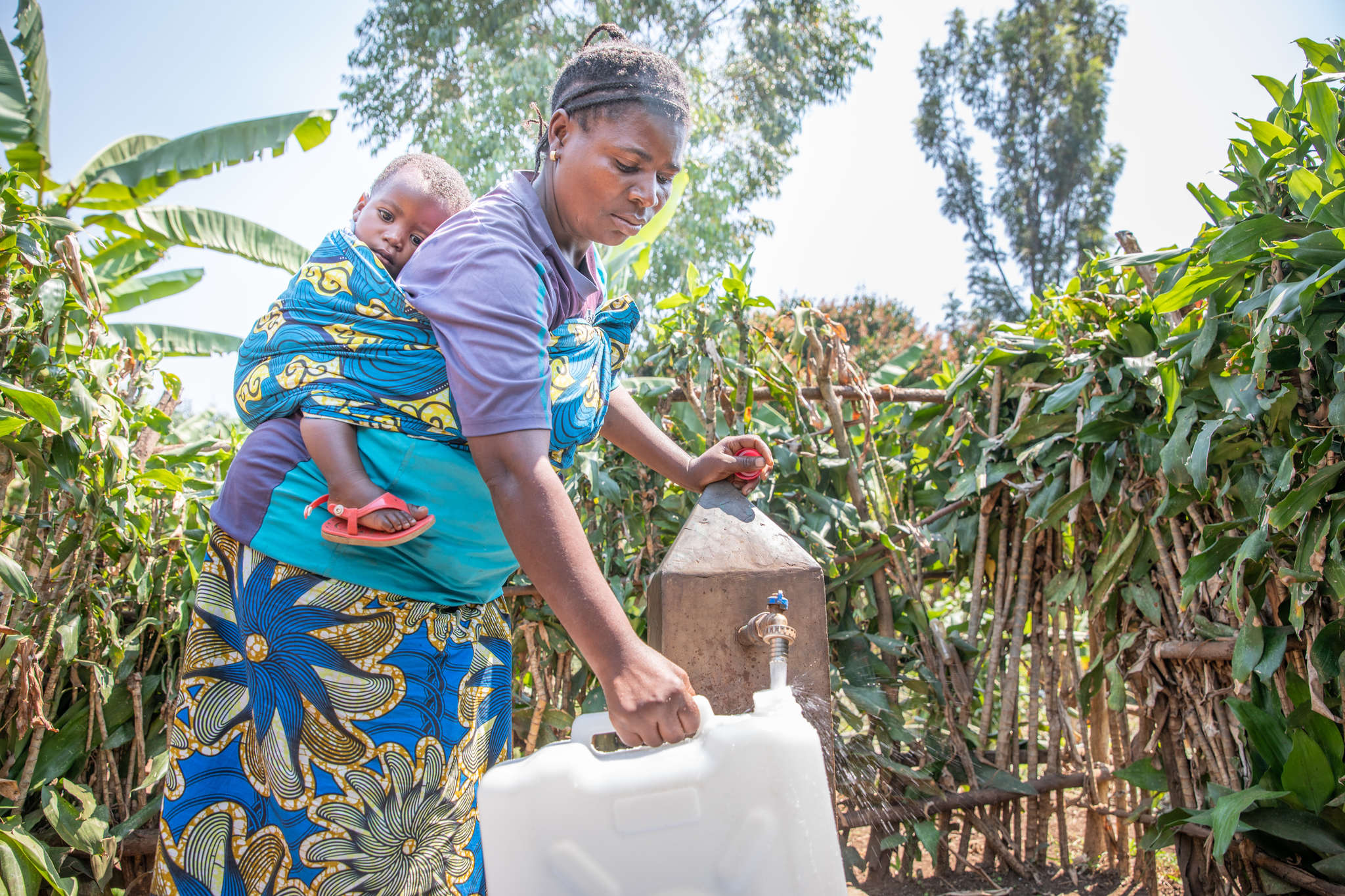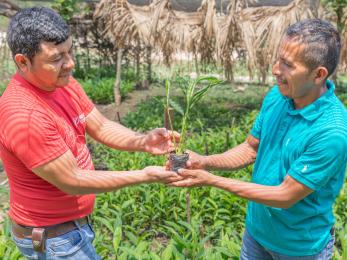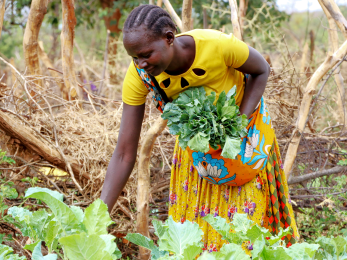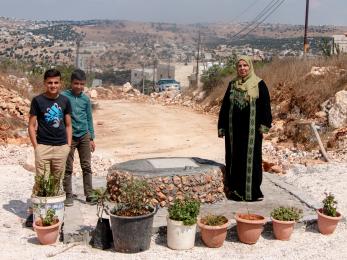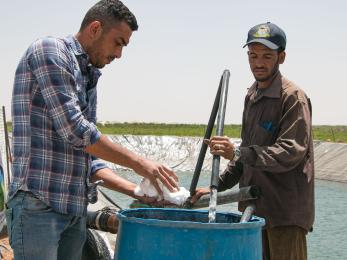Health
Our work to build healthy communities, families and individuals is at the heart of Mercy Corps' vision for social change. By partnering with a range of partners, from village health committees to government agencies, we help build the means to improve maternal, newborn and child health, ensure proper nutrition and combat infectious diseases.
Mercy Corps views public health as the foundation for long-term global development. Without reliable access to proper nutrition, clean water, sanitation and health services, it is impossible for people to move beyond the urgency of meeting their most basic needs. In nearly 150 projects in 32 countries over the past decade, we’ve tackled critical health issues and health disparities through community-based activities carried out alongside public and private partners. Because health is such a critical issue, we strive to integrate health activities into our other work, such as disaster response.
Maternal, Newborn and Child Health
Healthy mothers ensure healthy families. Mercy Corps’ maternal health programs emphasize good nutrition before and during pregnancy, prenatal supplements and promptly seeking care when dangerous complications appear during pregnancy or delivery. We use local and World Health Organization protocols to ensure that children and newborns get optimal care and treatment for significant health challenges including diarrhea, malnutrition and pneumonia.
In Jakarta, Indonesia, Mercy Corps has increased rates of breastfeeding through community support groups facilitated by trained volunteers, health provider trainings and partnerships with the private sector. We also help strengthen local governments to provide hygiene education and help communities improve access to clean water and sanitation. In West Sumatra, Mercy Corps works with local organizations and governments to decrease anemia among elementary school children through education, water and sanitation infrastructure improvement, and hygiene education.
Mercy Corps has also measurably improved maternal and child health and mortality rates in Azerbaijan, Eritrea, Guatemala, Honduras, Indonesia, Kosovo, Pakistan and Tajikistan.
Improving Nutrition for Communities
Malnutrition underlies 60 percent of childhood illness and death around the world. Mercy Corps uses a variety of approaches to address chronic and acute malnutrition. We partner with communities to build on local best practices, improve nutrition and save lives. Through our work, we have helped thousands of malnourished children in Pakistan, South Sudan, Eritrea and Indonesia, and we are preventing future malnutrition by teaching families about the importance of breastfeeding, as well as securing adequate balanced diets, safe drinking water and access to handwashing facilities.
For nearly two years, Mercy Corps has been helping village-level health centers in Niger identify and treat malnourished children, distribute food supplements and provide basic medical treatment. Our programs have improved the health of 40,000 children in Niger. Mercy Corps has also helped tens of thousands of malnourished children in Honduras, Guatemala and Tajikistan.
Fighting Infectious Diseases
Despite medical advances, infectious diseases still account for six in every 10 deaths in the world’s poorest countries. The toll from HIV/AIDS, tuberculosis and diseases caused by inadequate access to clean water is particularly tragic because these diseases are so preventable.
Mercy Corps sees HIV/AIDS as a development issue of critical importance that affects tens of millions of people worldwide. Our HIV/AIDS prevention programs are teaching life skills to war-affected youth in Liberia and Sudan and helping local organizations in Guatemala, Honduras, India, Nepal and Zimbabwe to effectively respond to this deadly scourge.
Once very treatable and manageable, tuberculosis (TB) has become an intractable global public health issue. TB treatment has become a critical activity in Pakistan, where Mercy Corps is using a protocol developed by the World Health Organization, in which community-based health providers deliver TB medicines to patients’ homes. This approach ensures that patients complete their treatment protocols and reduces the number of new, hard-to-treat resistant tuberculosis cases.
Mercy Corps’ efforts to control TB in Pakistan have been so successful that in 2006 we were declared the lead agency for TB control in Balochistan and Sindh provinces by the Pakistan government. We have helped 230,000 Pakistan and Afghan patients begin recovering from TB.
Water and Sanitation
Adequate clean water, reliable sanitation and good hygiene practices form the foundation of human health. Mercy Corps engages community members to ensure that everyone has easy and safe access to high-quality water and latrines. We also teach optimal hygiene practices and how to prevent malaria, diarrhea and other waterborne illnesses. Using these approaches, Mercy Corps is addressing pressing health issues in Guatemala, Sudan, Tajikistan and Zimbabwe.
In north Sudan, Mercy Corps provides safe drinking water, hygiene-related household items and waste collection to 135,000 Darfurians in displacement camps. We also provide a comprehensive health information program in which community volunteers promote culturally appropriate good hygiene and health care behaviors.
Psychosocial Support
Increasingly, Mercy Corps operates in insecure environments where fundamental rights are threatened by violence or lack of basic resources. In the context of disasters, wars and other emergencies, Mercy Corps’ health care programs engage local partners and build on individual and community resources to foster recovery. Mercy Corps also responds to social needs with community support that bolsters psychological security for children and families. Our psychosocial support programs have reached refugees in Darfur; those affected by the earthquakes in China, Iran and Peru; and survivors of the 2005 earthquake in Pakistan Kashmir and Hurricane Katrina in the United States.
